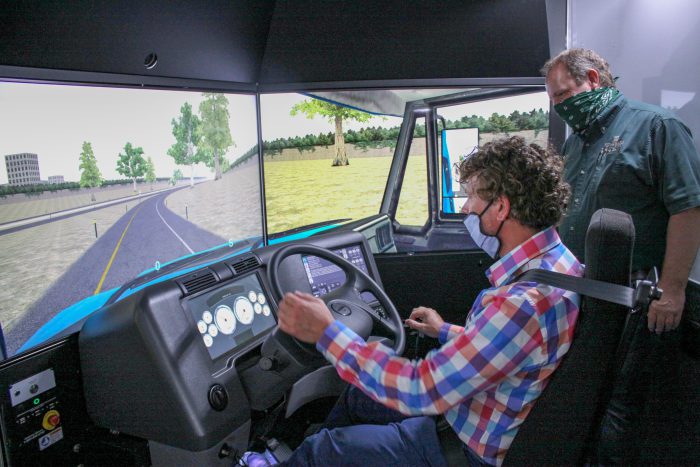Ridgewater and ag education partners receive $584,000 NSF grant
July 24, 2020

WILLMAR and HUTCHINSON, MN – Students and educators in regional high schools and colleges like Ridgewater College are joining forces to address a critical need for agricultural technicians through a $584,000 National Science Foundation grant.
By funding an educational project called Technical Applications in Agriculture (TAA), the NSF grant will leverage resources and experiences to build and replicate an industry-led model for career readiness. The primary goal is to create a pathway for high school agriculture students that will lead to a college- and industry-recognized credential, making a measurable impact on the agriculture technician workforce.
Leading partners include AgCentric, a collaborative that connects education to the agriculture industry; Curriculum for Agricultural Science Education (CASE); Ridgewater College, Central Lakes College, Northland Community and Technical College; and industry professionals.
Ridgewater is a natural partner in such a collaboration. Agriculture is one of its largest programs, with options in Agri-business, Agricultural Science and Technology, Agriculture Power and Equipment Technician, Agronomy, Dairy Management, Farm Business Management, Farm Operation and Management, GPS/GIS Information Systems Technology, and the newest addition of Poultry starting this fall.
“Our Ridgewater Agriculture faculty are extremely excited to be part of this innovative initiative to help provide regional solutions to a national problem,” said Curt Yoose, Ridgewater Agriculture instructor. “We have the second longest running precision agriculture program in the country, along with our newly created Agriculture Power and Equipment Technician program, so this partnership is a natural fit.”
“This project will allow us to leverage our many assets to help solve this ongoing shortage,” said Jeff Miller, Ridgewater dean of instruction. “For example, Ridgewater College has and will be training with the first-ever spray drone at a two-year college in Minnesota.” Another example is a mobile technology simulation unit in the works which will complement the current combine simulation unit used.
According to a study commissioned by the Associated Equipment Distributors Foundation, the agricultural equipment industry has a significant shortage of qualified technicians trained to manufacture, use, and maintain equipment, costing the economy $180 billion in lost revenue.
The TAA project aims to advance interests in health, prosperity, and welfare by educating students in manufacturing technologies for farming operations and equipment, geospatial technologies, robotics, electronics, sensors, and computer controls. It will do this via a course that will offer students dual enrollment credit at both high schools and post-secondary institutions. Secondary students successfully completing the course for a credential and college credit will move seamlessly into an agricultural technician training program at partnering post-secondary schools or into the agricultural technician workforce.
“As the agriculture industry employs more precision technology, the demand for trained talent grows significantly,” said Keith Olander, director of AgCentric and Dean of Agricultural Studies at Central Lakes College.
“Ridgewater has a long tradition of partnering agricultural education with industry and high schools,” Miller added. “This collaborative NSF project is another powerful strategy to enhance this high-demand industry with numerous employment possibilities.”
The National Science Foundation (NSF) is an independent federal agency that supports fundamental research and education across all fields of science and engineering. In fiscal year (FY) 2020, its budget is $8.3 billion. NSF funds research in all 50 states through grants to nearly 2,000 colleges, universities and other institutions. Each year, NSF receives more than 50,000 competitive proposals for funding and makes about 12,000 new funding awards.

